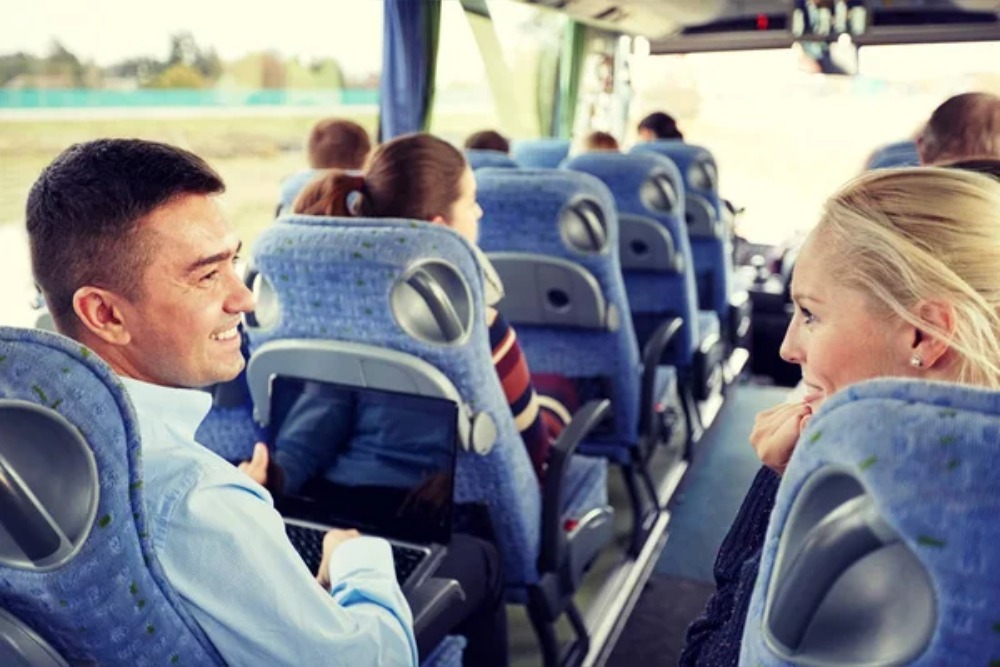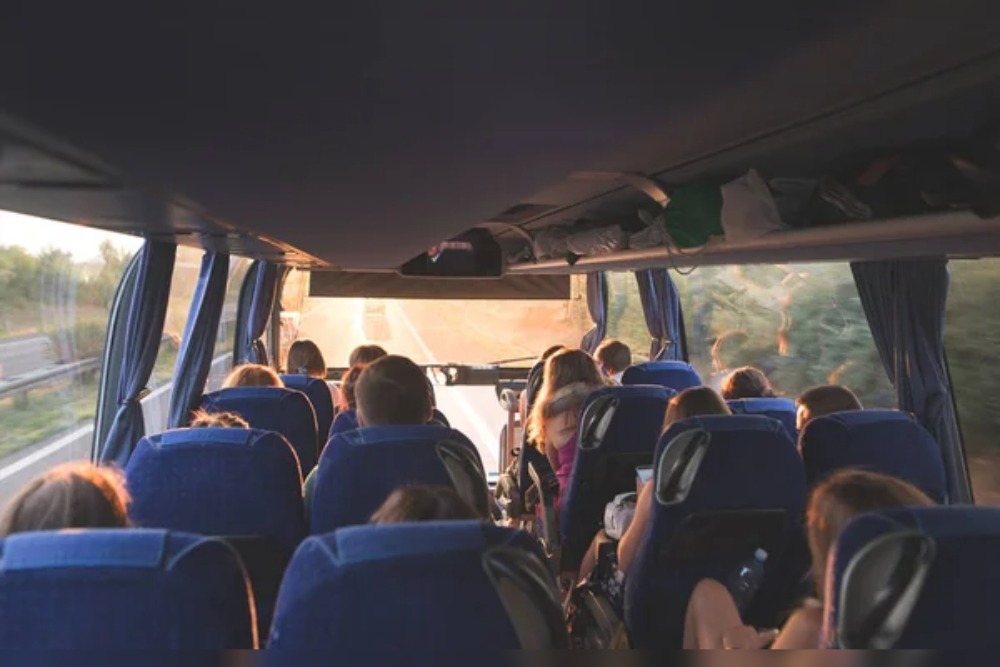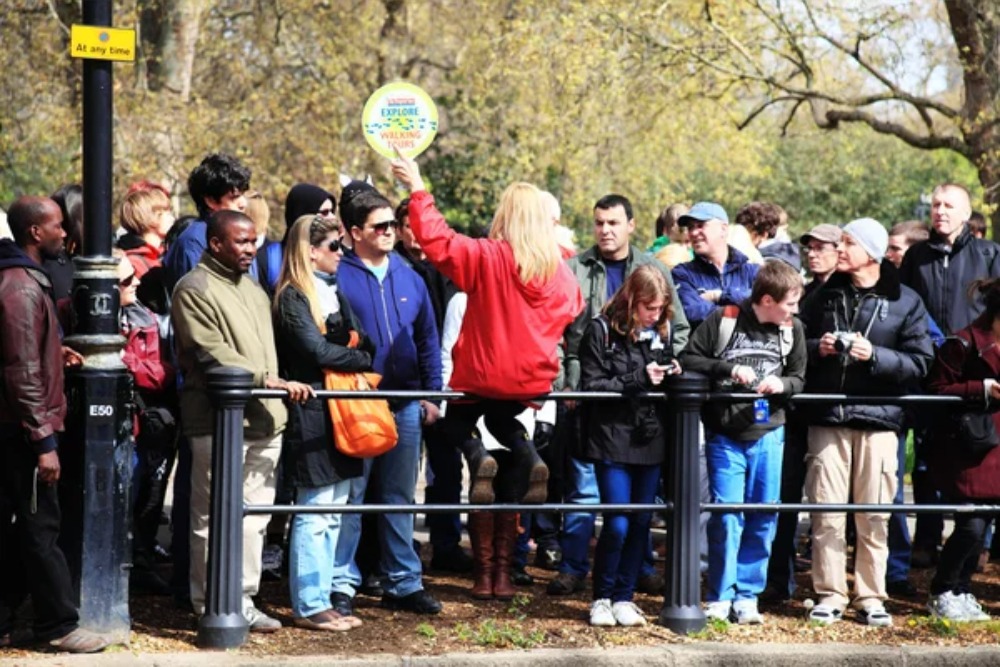Group travel can be one of life’s most rewarding experiences, creating memories that last a lifetime while strengthening bonds with friends, family, or colleagues. When everything goes smoothly, there’s nothing quite like exploring new destinations together, sharing amazing meals, and having people to laugh with when things get a little chaotic. The shared experiences become stories you’ll tell for years to come.
However, group travel can also turn into a complete disaster when certain mistakes derail the entire experience. Poor planning, mismatched expectations, and communication breakdowns can transform what should be an amazing adventure into a stress-filled nightmare that leaves everyone wishing they’d stayed home.
Here is a list of 16 common group travel mistakes that can completely ruin your trip and how to avoid them.
Not Setting a Clear Budget From the Start

Money talks — and when it comes to group travel, it needs to speak the same language for everyone involved. One of the fastest ways to create tension is when some people expect five-star accommodations while others are thinking more along the lines of budget hostels. This mismatch becomes painfully obvious when it’s time to book hotels, choose restaurants, or decide on activities.
Without a clear budget established upfront, you’ll find yourself in awkward situations where some members can’t afford the group’s choices, leading to resentment and exclusion.
Choosing the Wrong Group Leader

Every group needs someone to take charge, though picking the wrong person can spell disaster for the entire trip. The ideal group leader should be organized, diplomatic, and capable of making decisions without steamrolling everyone else’s opinions.
Unfortunately, many groups either choose someone who’s too passive and can’t make tough calls — or they pick someone who’s overly controlling and turns the trip into their personal dictatorship. A good leader balances taking initiative with being inclusive, ensuring everyone feels heard while keeping the group moving forward.
Like Travel Pug’s content? Follow us on MSN.
Failing to Discuss Travel Styles and Expectations

Not everyone travels the same way, yet assuming your group shares your travel philosophy is a recipe for conflict. Some people are early risers who want to hit every museum and landmark. Others prefer a more relaxed pace with plenty of downtime. Some travelers are adventurous eaters willing to try street food, while others stick to familiar cuisines.
These differences aren’t necessarily problems — they become major issues when they’re not addressed beforehand. Having honest conversations about what everyone expects from the trip helps prevent disappointment and allows for better planning.
Booking Accommodations Without Group Input

Rushing to book the first decent hotel or vacation rental without consulting the group is a common mistake that can create immediate friction. Room assignments, bed preferences, and amenities that matter to different people should all be discussed before any reservations are made.
One person might prioritize a pool, while another needs a quiet room for good sleep — and someone else might want a kitchen for preparing meals. When these preferences aren’t considered, you end up with unhappy travelers who feel their needs were ignored from day one.
Not Planning for Different Activity Interests

Assuming everyone wants to do the same activities is unrealistic and often leads to bored, frustrated group members. Some people live for historical sites and museums, others want to shop and explore local markets — and still others prefer outdoor adventures or nightlife.
Trying to force everyone into the same activities creates resentment. It also ensures that some people won’t enjoy significant portions of the trip. Smart group planners build in flexibility and options, allowing for sub-groups to split up occasionally to pursue different interests.
Like Travel Pug’s content? Follow us on MSN.
Inadequate Transportation Planning

Transportation hiccups can derail a group trip faster than almost anything else. Whether it’s underestimating how long it takes to get everyone ready and out the door, failing to research local transportation options — or assuming everyone’s comfortable with the same mode of travel, poor transportation planning creates stress and wasted time.
Some people might be fine with crowded public transport, while others prefer the comfort of taxis or rental cars. Having a solid transportation plan that considers everyone’s comfort levels and the logistics of moving a group efficiently is essential.
Overpacking the Itinerary

The temptation to see and do everything often leads to overly ambitious itineraries that exhaust everyone and leave no room for spontaneity or rest. Groups that try to cram too much into each day end up feeling like they’re running a marathon instead of enjoying a vacation.
This approach also doesn’t account for the fact that groups naturally move slower than individuals — whether it’s waiting for everyone to get ready, making group decisions, or simply accommodating different walking speeds. Building in downtime and being realistic about what can be accomplished in a day makes for a much more enjoyable experience.
Poor Communication During the Trip

Communication breakdowns during the actual trip can turn minor issues into major problems. When people don’t speak up about their concerns, preferences, or needs, resentment builds up and eventually explodes at the worst possible moment. Similarly, when one person or a small subgroup makes decisions without consulting others — it creates feelings of exclusion and frustration.
Regular check-ins, clear communication about daily plans, and making sure everyone feels heard are crucial for maintaining group harmony throughout the trip.
Like Travel Pug’s content? Follow us on MSN.
Not Handling Conflicts Promptly

Conflicts are inevitable when you put a group of people together in unfamiliar surroundings with packed schedules and limited personal space. The mistake many groups make is trying to ignore these conflicts — or hoping they’ll resolve themselves. Small disagreements about restaurant choices or activity timing can snowball into major arguments if they’re not addressed quickly and diplomatically.
Having strategies for handling conflicts and being willing to have difficult conversations early can prevent small issues from ruining the entire trip.
Ignoring Individual Needs and Preferences

Every traveler has specific needs, whether it’s dietary restrictions, accessibility requirements, medication schedules — or personal preferences that affect their comfort and enjoyment. Groups that fail to consider these individual needs often end up with members who feel ignored or excluded. This might mean choosing restaurants that accommodate everyone’s dietary needs, ensuring accommodations are accessible, or building in time for people to rest or pursue personal interests.
Acknowledging and planning for individual differences shows respect for all group members and contributes to everyone’s enjoyment.
Not Preparing for Group Dynamics

Group dynamics can shift dramatically when people are taken out of their familiar environments and placed in close quarters for extended periods. Personalities that work well in small doses might become overwhelming during a week-long trip, and unexpected leadership struggles or conflicts can emerge. Smart groups discuss potential issues beforehand and establish ground rules for handling disagreements, making decisions, and respecting personal space.
Understanding that even the best of friends might get on each other’s nerves after several days together helps set realistic expectations.
Like Travel Pug’s content? Follow us on MSN.
Failing to Plan for Emergencies

Groups often focus so much on the fun aspects of their trip that they forget to plan for potential emergencies or problems. This includes everything from medical issues and lost passports to missed flights and natural disasters. Having a plan for how to handle emergencies, including contact information for embassies or consulates, travel insurance details, and emergency funds, can save a trip from complete disaster.
Groups should also discuss what to do if someone gets sick or injured, or if external circumstances force changes to their plans.
Not Assigning Responsibilities Clearly

When no one has clear responsibilities, either nothing gets done or everything falls on one person’s shoulders, creating resentment and stress. Successful group trips benefit from dividing responsibilities among members based on their strengths and interests. One person might handle restaurant reservations, another could manage transportation, and someone else could be in charge of researching activities.
This approach distributes the workload and ensures that everyone has a stake in the trip’s success while preventing any one person from becoming overwhelmed.
Underestimating the Importance of Downtime

Groups often make the mistake of thinking that every moment of their trip needs to be filled with activities and sightseeing. This approach ignores the fact that traveling can be exhausting, and people need time to rest, recharge, and process their experiences. Constant activity also doesn’t allow for the spontaneous conversations and bonding that often become the most memorable parts of group trips.
Building in regular downtime, whether it’s a lazy morning at the hotel or an unstructured afternoon, gives everyone a chance to relax and enjoy each other’s company without the pressure of a packed schedule.
Like Travel Pug’s content? Follow us on MSN.
Not Being Flexible When Plans Change

Rigid adherence to original plans can turn minor setbacks into major disasters. Weather, transportation delays, illness, or simply discovering that a planned activity isn’t as interesting as expected are all common travel situations that require flexibility. Groups that can’t adapt to changing circumstances often find themselves frustrated and stressed instead of making the best of new situations.
The most successful group trips are those where members can laugh off minor problems and see unexpected changes as opportunities for new adventures rather than trip-ruining disasters.
Assuming Everyone Has the Same Energy Levels

Different people have different energy levels and travel stamina, and failing to account for this can create significant problems. Some travelers are energizer bunnies who can go from dawn to dusk, while others need regular breaks and reasonable bedtimes to function well. Age differences, health conditions, and personal preferences all affect how much activity someone can handle.
Groups that don’t consider these differences often end up with some members feeling dragged along or holding others back, neither of which makes for a pleasant experience.
When Group Travel Works

Despite all the potential pitfalls, group travel continues to be popular because when it works, it creates incredible experiences that simply can’t be replicated when traveling alone. The key lies in learning from the mistakes of others and putting in the effort upfront to plan thoughtfully and communicate clearly.
Today’s travelers have better planning tools and apps than ever, making coordination easier than in the past. The groups that thrive are those that embrace both the challenges and the rewards of traveling together, understanding that a little extra effort in planning pays dividends in enjoyment and lasting memories.
More from Travel Pug

- 20 Best Beach Towns in the Carolinas
- 13 Destinations Where Tourists Regularly Regret Their Trip
- 20 Things You Actually Get in First Class
- 20 Small Airports With Aviation Museums
- 20 Places in the U.S. That Are Perfect for a Reset Trip
Like Travel Pug’s content? Follow us on MSN.
